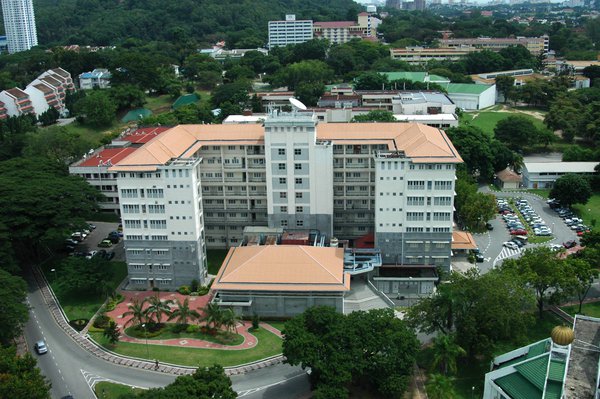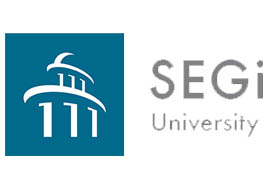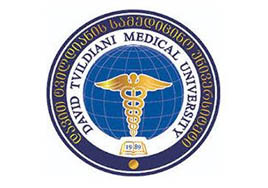About University Sains Malaysia
![About University Sains Malaysia]()
In general, Mbbs in Malaysia the course is based on a multi?disciplinary learning system. One of the uniqueness of the School of Medical Sciences is an integrated?based teaching and learning system with an emphasis on problem?based learning. This curriculum emphasizes the patient as a human being in the context of family and community. It aims to raise awareness about medical responsibility to the community in a broader context, as well as leadership roles in health care and continuing medical education.
Why Choose University Sains Malaysia
Doctor of Medicine (MD)
INTRODUCTION
The School of Medical Sciences which was established in 1979 began to offer the Medical Degree Course in June 1981. This course was run in Universiti Sains Malaysia, Health Campus. The campus is located on a 72.84 hectares area in Kubang Kerian, Kelantan. It is equipped with the most advanced study, research and medical facilities in the region. This is in accordance with the wish of its establishment, which is to produce doctors and medical professionals that would meet the needs of the country, in addition to improving medical services.
School of Medical Sciences has three main functions, namely: ?
- (a) Teaching
- (b) Patient care services
- (c) Research
Entry Requirement
- Obtained GCE “A” Levels with a minimum of AAA in 3 of the
- following subjects:
- Biology;
- Chemistry;
- Physics/Mathematics
OR
- Obtained International Baccalaureate (IB) Diploma with a
- minimum of 36 points with a minimum score of 6 in Higher Level
- (HL) in two subjects and a minimum score of 6 in Standard Level
- (SL) in one subject for the following subjects:
- Biology;
- Chemistry;
- Physics/Mathematics
OR
- Obtained qualifications with the relevant system/board
- examination of the respective countries equivalent to GCE “A”
- Levels or equivalent to CGPA 3.8 with high pass/distinction in the
- following subjects:
- Biology;
- Chemistry;
- Physics/Mathematics
OR
- Attained an Undergraduate Science/ Allied Health Sciences
- degree program from a recognized university with minimum CGPA
- 3.7 or equivalent.
AND
- Obtained General Certificate of Secondary Education (GCSE) or
- equivalent with a minimum of grade A in these subjects:
- Biology
- Chemistry
- Physics
- Mathematics/Additional Mathematics
Obtained ONE of the English Language Proficiency qualifications
as below:
- Band 6.0 and above for IELTS (Academic); or
- Score of 547 (PBT), 210 (CBT) or 78 (IBT) and above in TOEFL; or
- Band 4 and above in MUET; or
- Score 57 and above in PTE Academic; or
- Grade C and above in English Language in A-Level, Univ. of
- Cambridge; or
- Grade C and above in English Language in O Level, Univ. of
- Cambridge; or
- Grade B and above in Cambridge Assessment English: First
- (FCE)
Curriculum
PHASE I CURRICULUM
The first and the second years of this program prepares for basic medical course for the students. It includes the study of structure, function and biochemical process of a normal human being which form the basis of pathophysiology and clinical basis of diseases in different systems.
A study on bioethics, social health, communication skills, behavioural science, first aid, basic research methodology and the exposure to the clinical environment in the hospital and in community medicine and public health are also provided to the students.
Phase II consists of Year 3, 4 and 5 of the Medical Doctor course in USM. It has been structured to enable the graduate to do the following:-
1. Understand the scientific basis of medicine and its application to patient care.
2. Acquire a satisfactory standard of clinical competency relating to the following:
- Ability to interview and obtain a satisfactory case history from patients.
- Ability to perform physical examination and carry out simple clinical procedures.
- Ability to diagnose common diseases and acute emergencies and formulate their solutions, which include the institution of first line management, before referral for specialist treatment whenever necessary.
- Acquisition of satisfactory behavioural and communication skills necessary for instituting patient management.
3. Understand and appreciate the socio-cultural background of patients and their environment in formulating plan of management, including long term management and follow-ups.
4. Understand the broader role, responsibilities and professionalism of a doctor in society and play the leading role in the health care of community.
5. Utilise the knowledge acquired to pursue continuing medical education.
6. Appreciate the importance of ethics in medical practice and in culcate good habits in daily practice.
7. Brace to the knowledge and skills in order to become a competent houseman upon completing the course.
Interview
Multiple Mini Interviews (MMI) is conducted for candidates who wish to apply for the Bachelor of Medicine and Bachelor of Surgery (MBBS) Programme. Candidates are invited to attend the interview (usually conducted in the months of May/June).
The interview emphasizes on candidate’s demonstration of preferred non-cognitive characteristics. The non- cognitive characteristics identified as favourable traits in medical students are as follows but not limited to the following components:
- (a) Giving instructions
- (b) Receiving instructions
- (c) Emotional communication
- (d) Problem solving
- (e) Resilience and maturity
- (f) Enthusiasm for medicine
- (g) Ethics
- (h) Awareness of common issues in medicine
Candidates are expected to spend a total of approximately 40 minutes to complete the interview. Interviewers seek spontaneous and genuine responses from candidates during the sessions.
Candidates will be awarded marks based on the following criteria:
- 1. Quality of content
- 2. Expression of opinion
- 3. Body Posture
- 4. Facial expression
- 5. Use of eye contact
- 6. Use of gestures
- 7. Language fluency
Recognition & Accreditation:
This programme is recognised by the Malaysian Medical Council (MMC), Medical Council of India (MCI) and accredited by the Malaysian Qualifications Agency (MQA).
















